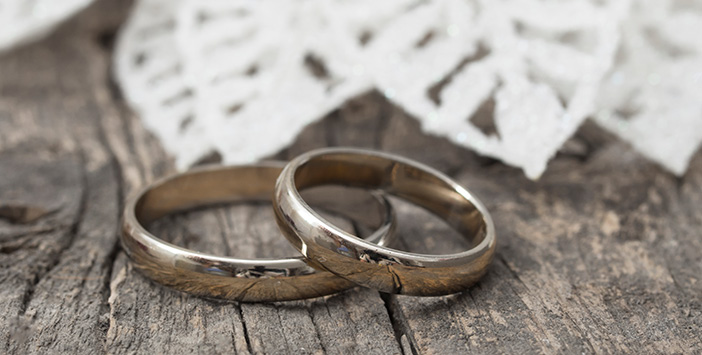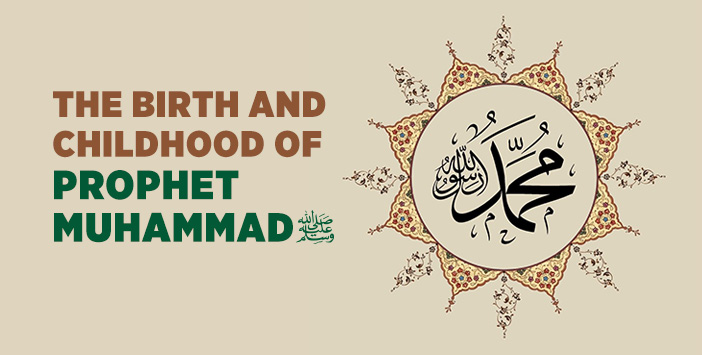How was Muhammad’s marriage to Khadija? You can read everything about their marriage…
Immediately following the return to Mecca, Maysara began conveying in great detail the supreme conduct he witnessed in the Blessed Man during the journey, as well as their spectacular experiences throughout. Upon hearing this, Khadijah -Allah be well-pleased with her- began nurturing a wish to marry Muhammad -upon him blessings and peace-.
Nafîsa bint Umayya, a close friend of Khadijah -Allah be well-pleased with her-, narrates how it all developed then on:
“Khadijah -Allah be well-pleased with her- was a clever, hardworking lady of an splendid moral standard. Virtually, there was not a single man from her tribe who did not carry a strong desire to marry her. But Khadijah -Allah be well-pleased with her- was a great admirer of Muhammad -upon him blessings and peace-. Following their return with the trade caravan from Damascus, Khadijah -Allah be well-pleased with her- sent me to sound him out regarding his intentions of marriage.
‘Why don’t you marry, Muhammad?’ I asked him.
‘How can I when I am without material means?’
‘Say you did have the means; would you then marry an honorable, beautiful and moreover wealthy woman?’
‘Who is this lady?’ he then asked.
‘Khadijah -Allah be well-pleased with her-’, I replied.
‘Do you think that is possible?’
‘Leave that to me’, I assured him. He then remarked:
‘If you can arrange it, I will marry her.’
Without delay, I went to Khadijah -Allah be well-pleased with her- to inform her of our conversation.” (Ibn Saad, I, 131)
Upon hearing the good news of her confidant, Khadijah -Allah be well-pleased with her- proposed to Muhammad -upon him blessings and peace-. The Light of Being -upon him blessings and peace- then informed his uncle Abu Talib of the proposal, who in line with the custom of the time went to Khadijah’s -Allah be well-pleased with her- uncle to ask her hand in marriage on behalf of his beloved nephew. Khadijah’s -Allah be well-pleased with her- uncle gave his blessings and the marriage ceremony went ahead, attended by all relatives and friends. Short speeches were given by Abu Talib and Khadijah’s -Allah be well-pleased with her- cousin Waraqa ibn Nawfal. Once the talks came to an end, Khadijah’s -Allah be well-pleased with her- uncle Amr stood and said:
“Bear witness, people of Quraysh, that I hereby declare Khadijah -Allah be well-pleased with her- ibn Khuwaylid as the wife of Muhammad ibn Abdullah.”[1]
As mahr, the obligatory dowry offered to the bride in marriage, Muhammad -upon him blessings and peace- gave Khadijah -Allah be well-pleased with her- twenty young camels.[2] At the time of their marriage, Muhammad -upon him blessings and peace- was around twenty-five years old, while Khadijah -Allah be well-pleased with her-, a widow already with children from her previous marriage, was around forty.
Throughout their marriage, Khadijah -Allah be well-pleased with her-, the mother of the Believers, proved to be a brilliant support for Muhammad -upon him blessings and peace-, virtually laying her life and riches at his feet. Stemming from her noble character, she was known as al-Afifah (the Chaste), al-Tâhirah, (the Pure) and most notably, before and after the advent of Islam, as Khadijat’ul-Kubra,[3] Khadijah -Allah be well-pleased with her- the Great.
The following words of the Messenger of Allah -upon him blessings and peace- attest to her outstanding status:
“The best woman of the Hereafter is Maryam bint Imrân, mother of Isa, while the best of this world is Khadijah -Allah be well-pleased with her- bint Khuwaylid.” (Bukhari, Manâqıbu’l-Ansâr, 20; Muslim, Fadâil’us-Sahâbah, 69)
The future Prophet’s choice of marriage shows he was never a man motivated by egoistic desires. He could have most certainly married a younger and more beautiful lady, if he wanted, and not a widow with children. But the Noble Muhammad -upon him blessings and peace- was not searching for passing beauties or youth in his wife to be, but rather treasured virtues like honor, chastity and morals.
Source: Osman Nuri Topbaş, The Prophet Muhammed Mustafa the Elect, Erkam Publications
[1] Diyarbakrî, I, 264; Yakûbî, II, 20.
[2] Ibn Hisham, I, 206; Ibn Asîr, Usdu’l-Ghaba, I, 23.
[3] Ibn Saad, VIII, 14-15.




